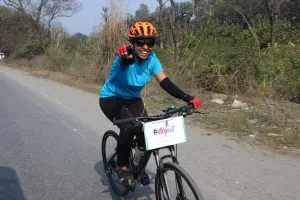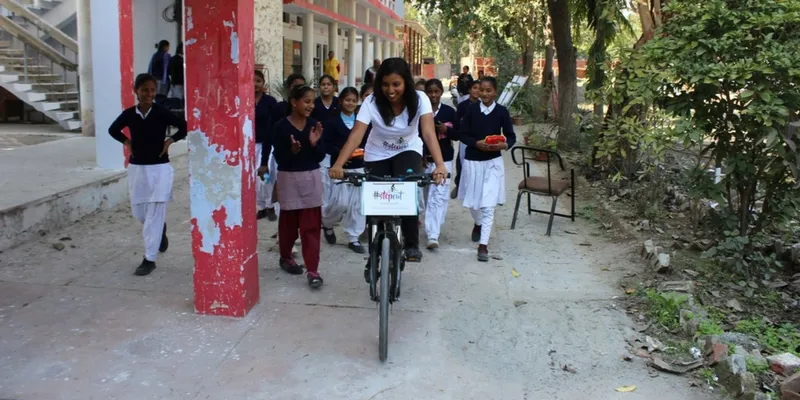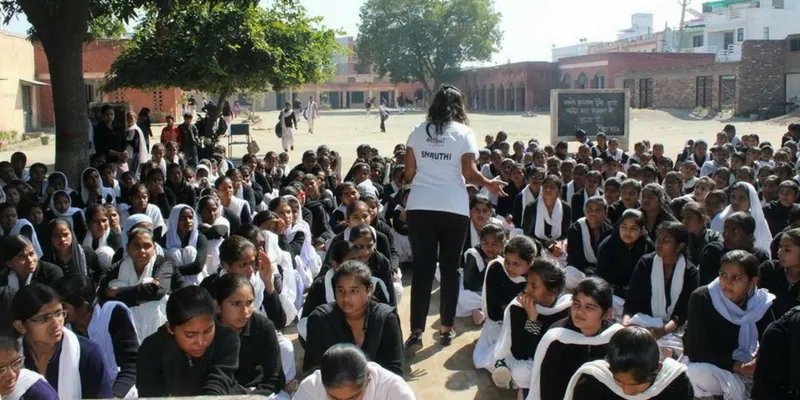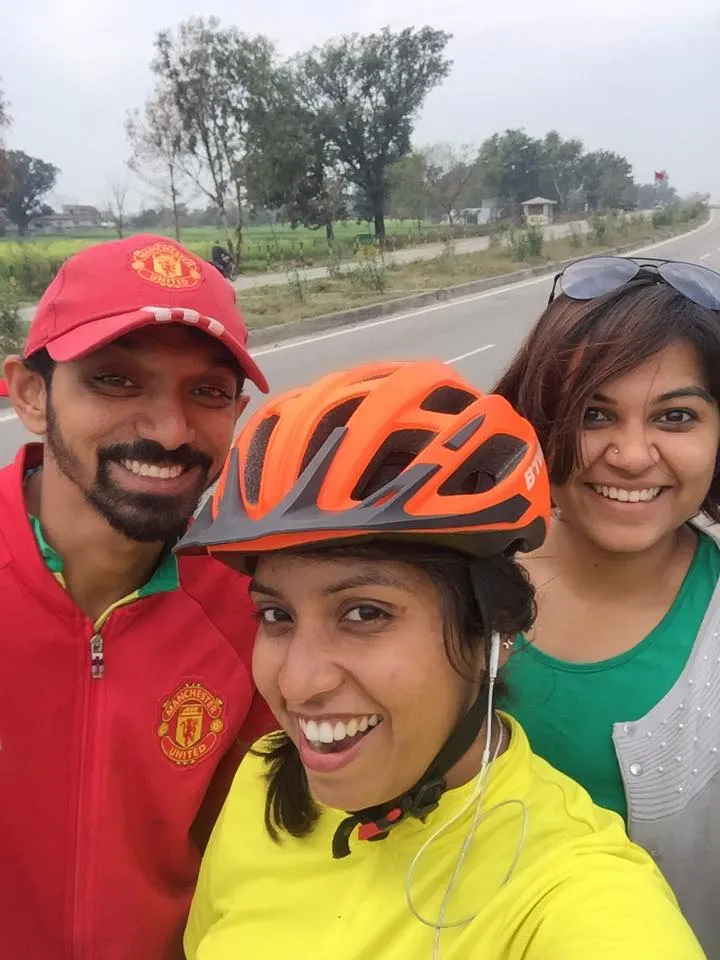Spreading the message of gender neutrality from Kashmir to Kanyakumari on cycle
Shruthi has embarked on her journey covering 13 States and 500 villages to understand how gender plays a role in different geographies, backgrounds and traditions, interact with adolescents and discuss gender neutrality.
Few have the courage to leave their job and make passion their career. But 27-year-old Shruthi Shivashankar Murthy is anything but ordinary. An engineer by qualification, Shruthi quit her job as a financial consultant and decided to combine her love for travelling and cycling for a cause— to spread the message of gender neutrality among adolescents across the length and breadth of India.
Travelling and cycling with a special message

While traveling 4,200km in a span of 45 days can be daunting task for many, Shruthi believes her cause is worth this journey.“I didn't want my travel to be just a travel. I wanted to spread a social message. That's how I came out with an initiative— Step Out for a Gender Neutral India.”
Step Out has a deep significance in Shruthi’s life. It signifies her physical attempt to step onto her cycle to make a difference, where she is stepping out of her comfort zone to learn more. The initiative is her way to let people know that there are no limitations when it comes to your gender and that everyone should embrace their individuality and follow their dreams.
Riding 120km a day, she refuses to bow down to the erratic weather and credits her crew members, Rupert and Anagha, for the smooth execution of her entire journey. From logistics, accommodation to travel plan, the team has been successful in getting assistance from not just their friends and family but also from strangers via crowdsourcing and social media.

Shruthi had her first encounter with education initiatives in 2014, when she was pursuing Gandhi Fellowship and was posted in interior tribal areas of Udaipur, Rajasthan. There, she learnt the importance of life skill education and the necessity to provide the right information to young children regarding menstrual heath, sex education or gender-based education.
Post her fellowship, Shruthi returned back home to Mysuru, Karnataka. She continued her interaction with children and started similar education initiatives, conducting menstrual health education for girls, in the tribal areas of Bandipur forests. Simultaneously, she started cycling and would often go for solo rides across towns in weekends. In the past three-and-a-half years, she has cycled along the Western Ghats of Karnataka and across the Himalayan range, riding from Manali to Leh.
“Cycling gives me a sense of liberation. I discover a new me in every ride. Sitting on the saddle and pedalling to explore is by itself empowering,” she says.
Like all other cyclists, she always dreamt of cycling from Kashmir to Kanyakumari. Till date, only one woman, Anahita Sripasad, has dared to cycle this vast stretch in the past. Shruthi decided that she, too, would travel this path and combine both her interests.
Both men and women are victims of gender stereotyping
In today’s fast-paced world with varied information floating everywhere, it has become very important for young kids to be equipped with the right knowledge and skills to face the society. Adolescence is a phase where the children come out of their comfort zone; they try to learn the society’s what, how, and why. And that is when they pick up all these stereotypes, get influenced by the media and they learn the gender roles, Shruthi explains.
“We need to tell them that, 'yes, there is something called sex and gender. But these are two different things'.”
Sex is just physical and your reproductive organ categorises you as a male or female. But gender is a societal distinction, where society lays down certain rules and dictates what a man or a woman should do. And this is where most of the people get victimised, she adds.
Not just women, even men face gender stereotyping. Men have been taught to lead a certain lifestyle since a very young age—be it handling the pressure for household finances, or being limited to pursue their dream career because it doesn’t fit into the role of a typical male job. Elaborating further she says that men have difficulty in expressing emotions because they have heard since childhood that, “Mard ban. Rote nahi!”

The team has addressed more than 500 students across Jammu, Punjab and Haryana till date. While the response across the states have been varied, Shruthi was surprised to see the level of awareness among the children in Harayana. The girls discussed various taboos faced by women in their community. Women are limited to cooking and child-rearing, they said. However, the young girls continue to be determined in that environment and with the right skill set, Shruthi believes, they can bring about a change in the society.
Life skills education is the way forward

Even though India has moved forward, the education curriculum remain decades-old and has failed to keep pace with the changing time. Shruthi believes that inclusion of life skill studies in the Indian education system is an integral step towards achieving a gender neutral India. The World Health Organisation has also advocated for mandatory addition of life skill such as as empathy, self-awareness, communication and articulation at the primary school level.
Once, there was a discussion on transgenders in her class in Bandipur and eight-year-old students told her that they were scared of that community. The children admitted that they didn't know how to respond or talk to a transgender. They complained that the community often seemed rebellious and rude to them. Shruthi then had dialogue with them and explained the harsh conditions that were faced by the transgenders in our society.
She told them, “Can you imagine yourself getting rejected from one particular class or a school in your area? Now imagine this rejection and multiply it by 200 times.” The children thought and declared sometime later that they will now be nice to them and acknowledge their presence.
“This is what is needed in today’s generation. We don't need the children to go into their own shell where they don't know what is happening around them.” Life skills will not only take the children forward, but, it will enable them to make perfect decisions in their future.







